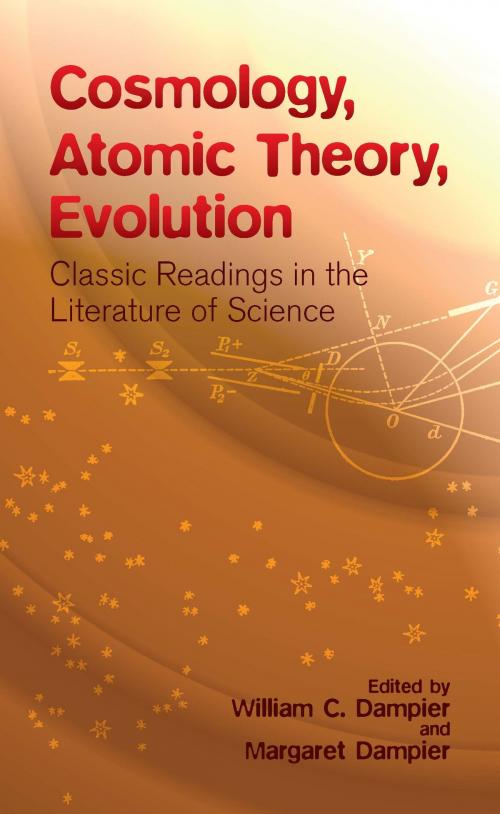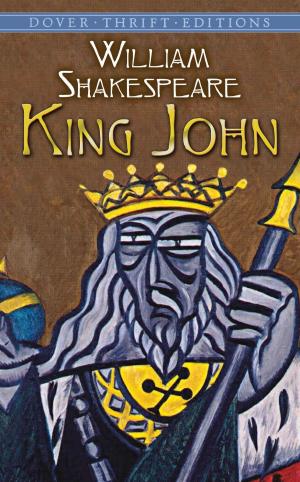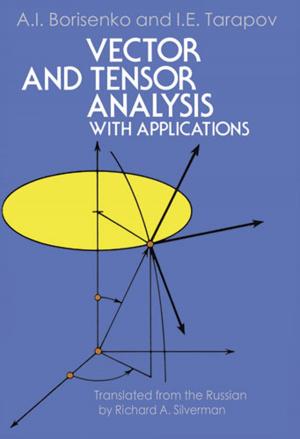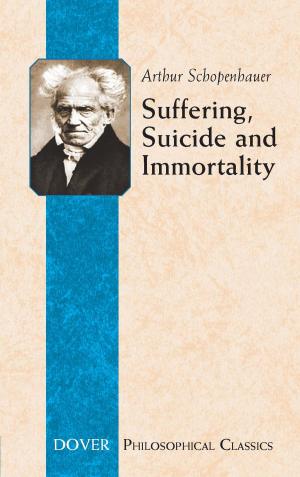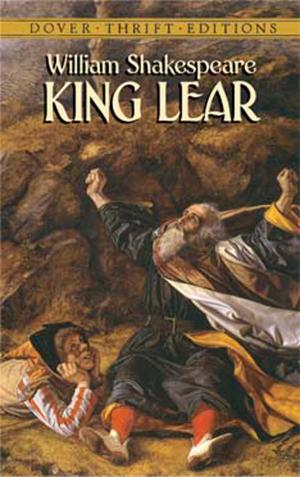Cosmology, Atomic Theory, Evolution
Classic Readings in the Literature of Science
Nonfiction, Science & Nature, Science, Physics, Cosmology, Biological Sciences, Biology, Evolution| Author: | ISBN: | 9780486165639 | |
| Publisher: | Dover Publications | Publication: | September 30, 2013 |
| Imprint: | Dover Publications | Language: | English |
| Author: | |
| ISBN: | 9780486165639 |
| Publisher: | Dover Publications |
| Publication: | September 30, 2013 |
| Imprint: | Dover Publications |
| Language: | English |
"Sir William Cecil Dampier's Readings in the Literature of Science has long been a classic. Unlike many other collections, it has the virtue of dealing thoroughly with three major subjects which are at the very heart of science: cosmogony, atomic theory and evolution. For each, the readings have been selected so as to give a continuous story, enabling the reader to share in the great excitement of the process of scientific discovery and the growth of knowledge from the earliest times to the present. Here, in the original writings of the men who have made science, are displayed the noble qualities of the disciplined imagination which are the chief defining characteristics of the scientific enterprise." — I. Bernard Cohen, Professor of the History of Science, Harvard University
From the biblical book of Genesis to Henri Bergson's Creative Evolution, these extracts from world literature illustrate the development of scientific thought across millennia. Starting with speculations by the ancient Greeks on the structure of the universe, selections on cosmogony include works by Copernicus, Galileo, Newton, Laplace, Foucault, and Einstein. Theories and reports on experimental results concerning the nature of matter range from Paracelsus' writings on alchemy to Faraday's work with electrochemistry and Sir Ernest Rutherford's studies of radioactivity and the structure of the atom. The final section on evolutionary theory begins with Aristotle and Pliny and features landmark works by the giants in the field, among them, Linnaeus, Lamarck, Lyell, Malthus, Darwin, and Mendel. 36 figures. 7 tables.
"Sir William Cecil Dampier's Readings in the Literature of Science has long been a classic. Unlike many other collections, it has the virtue of dealing thoroughly with three major subjects which are at the very heart of science: cosmogony, atomic theory and evolution. For each, the readings have been selected so as to give a continuous story, enabling the reader to share in the great excitement of the process of scientific discovery and the growth of knowledge from the earliest times to the present. Here, in the original writings of the men who have made science, are displayed the noble qualities of the disciplined imagination which are the chief defining characteristics of the scientific enterprise." — I. Bernard Cohen, Professor of the History of Science, Harvard University
From the biblical book of Genesis to Henri Bergson's Creative Evolution, these extracts from world literature illustrate the development of scientific thought across millennia. Starting with speculations by the ancient Greeks on the structure of the universe, selections on cosmogony include works by Copernicus, Galileo, Newton, Laplace, Foucault, and Einstein. Theories and reports on experimental results concerning the nature of matter range from Paracelsus' writings on alchemy to Faraday's work with electrochemistry and Sir Ernest Rutherford's studies of radioactivity and the structure of the atom. The final section on evolutionary theory begins with Aristotle and Pliny and features landmark works by the giants in the field, among them, Linnaeus, Lamarck, Lyell, Malthus, Darwin, and Mendel. 36 figures. 7 tables.
